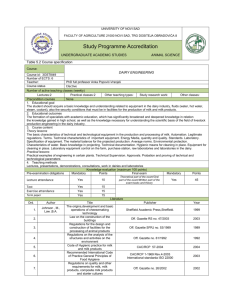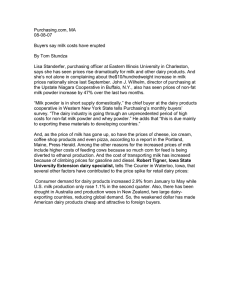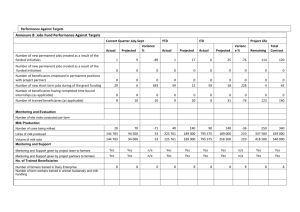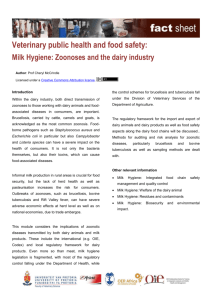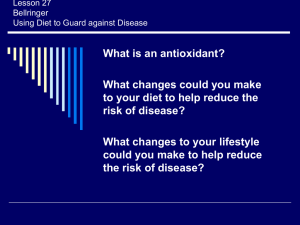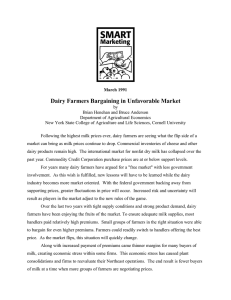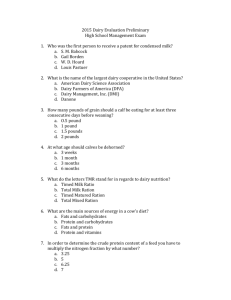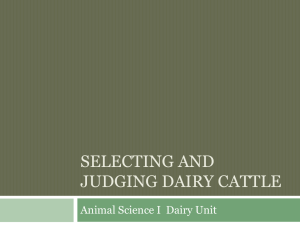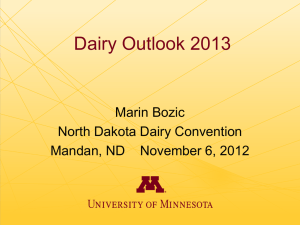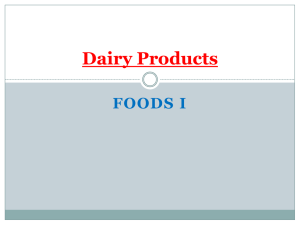On Brussels, 2nd September 2015 Dear Commissioner, You will be
advertisement
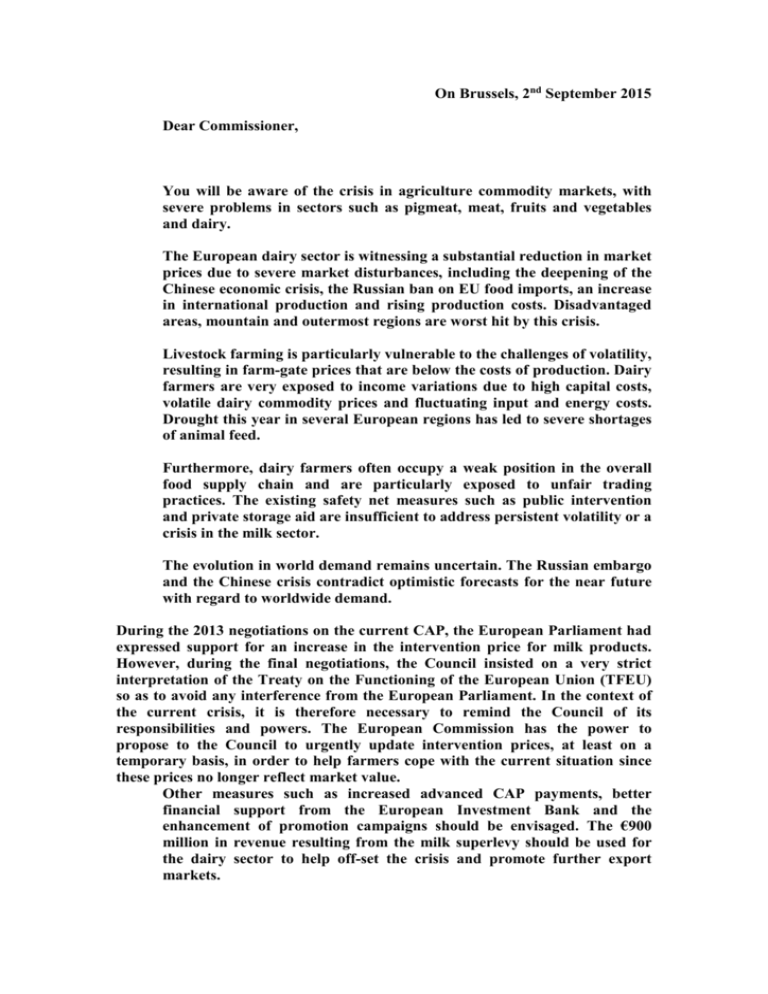
On Brussels, 2nd September 2015 Dear Commissioner, You will be aware of the crisis in agriculture commodity markets, with severe problems in sectors such as pigmeat, meat, fruits and vegetables and dairy. The European dairy sector is witnessing a substantial reduction in market prices due to severe market disturbances, including the deepening of the Chinese economic crisis, the Russian ban on EU food imports, an increase in international production and rising production costs. Disadvantaged areas, mountain and outermost regions are worst hit by this crisis. Livestock farming is particularly vulnerable to the challenges of volatility, resulting in farm-gate prices that are below the costs of production. Dairy farmers are very exposed to income variations due to high capital costs, volatile dairy commodity prices and fluctuating input and energy costs. Drought this year in several European regions has led to severe shortages of animal feed. Furthermore, dairy farmers often occupy a weak position in the overall food supply chain and are particularly exposed to unfair trading practices. The existing safety net measures such as public intervention and private storage aid are insufficient to address persistent volatility or a crisis in the milk sector. The evolution in world demand remains uncertain. The Russian embargo and the Chinese crisis contradict optimistic forecasts for the near future with regard to worldwide demand. During the 2013 negotiations on the current CAP, the European Parliament had expressed support for an increase in the intervention price for milk products. However, during the final negotiations, the Council insisted on a very strict interpretation of the Treaty on the Functioning of the European Union (TFEU) so as to avoid any interference from the European Parliament. In the context of the current crisis, it is therefore necessary to remind the Council of its responsibilities and powers. The European Commission has the power to propose to the Council to urgently update intervention prices, at least on a temporary basis, in order to help farmers cope with the current situation since these prices no longer reflect market value. Other measures such as increased advanced CAP payments, better financial support from the European Investment Bank and the enhancement of promotion campaigns should be envisaged. The €900 million in revenue resulting from the milk superlevy should be used for the dairy sector to help off-set the crisis and promote further export markets. The current market instability also justifies the creation of a new High level Expert Group on milk to study new ways of ensuring better conditions for farmers. In July 2015, the European Parliament adopted a Report on the milk sector in which it urged the Commission to introduce targeted market initiatives to address the crisis currently affecting domestic dairy markets as a result of downward price pressure. The resolution calls, among other measures, for the improvement of the existing Milk Market Observatory so as to make it a more suitable instrument for crisis prevention. Parliament´s Report also supports a wider implementation of the “milk package” regulation in order to ameliorate contractual relationships in the food chain. Furthermore, in December 2013, the European Parliament adopted a report on maintaining milk production in mountain areas, disadvantaged areas and outermost regions after the expiry of the milk quota. After the Russian ban the report is even more topical. We strongly support the adoption of appropriate market measures in favour of all farmers in all sectors affected by the current agricultural crisis. We hope you will take Parliament´s requests into consideration and look forward to discuss this important item with you at the earliest opportunity.

